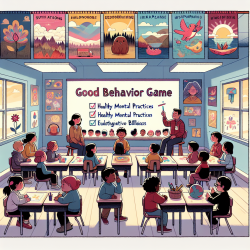Introduction
Delirium is a sudden change in mental status, often overlooked, that can lead to severe outcomes such as prolonged hospital stays and increased mortality rates. With prevalence rates between 18% to 50% at admission and 11% to 82% during hospitalization, the need for effective delirium management is critical, especially for older adults. The research paper titled Effectiveness of Interprofessional Consultation-Based Interventions for Delirium: A Scoping Review explores the impact of interprofessional consultation teams on delirium care.
Core Findings from the Research
The research identifies several core components of successful interprofessional consultative delirium interventions:
- Systematic Delirium Screening: Regular screening using validated tools like the Confusion Assessment Method (CAM) is crucial for early detection and management.
- Ongoing Consultation: Regular consultation with an interprofessional team ensures that delirium management is integrated into daily care routines.
- Non-Pharmacological and Pharmacological Interventions: A balanced approach that includes both medication management and non-pharmacological strategies, such as mobility and sensory adaptation, is essential.
- Staff Education: Continuous education and training for healthcare staff are vital for the effective implementation of delirium management strategies.
Implementing the Findings
Practitioners can enhance their skills and improve patient outcomes by integrating these components into their practice. Here are some practical steps:
- Adopt Regular Screening Protocols: Implement routine delirium assessments using tools like CAM to ensure early detection.
- Foster Interprofessional Collaboration: Encourage collaboration among healthcare professionals to provide comprehensive care plans tailored to individual patient needs.
- Enhance Staff Training: Invest in regular training sessions to keep staff updated on best practices for delirium management.
- Utilize Non-Pharmacological Strategies: Incorporate strategies such as promoting mobility, ensuring proper hydration, and adapting sensory environments to prevent and manage delirium.
Encouraging Further Research
While the research provides valuable insights, it also highlights the need for further studies to standardize intervention protocols and evaluate their effectiveness across diverse settings. Practitioners are encouraged to contribute to this growing body of knowledge by conducting research in their own settings, focusing on the operationalization of these interventions and their impact on patient outcomes.
Conclusion
Interprofessional consultative delirium interventions show promise in improving delirium management in hospital settings. By implementing the core components identified in the research, practitioners can enhance patient care and outcomes. Continued research and collaboration are essential to refine these interventions and establish best practices for delirium management.
To read the original research paper, please follow this link: Effectiveness of Interprofessional Consultation-Based Interventions for Delirium: A Scoping Review.










